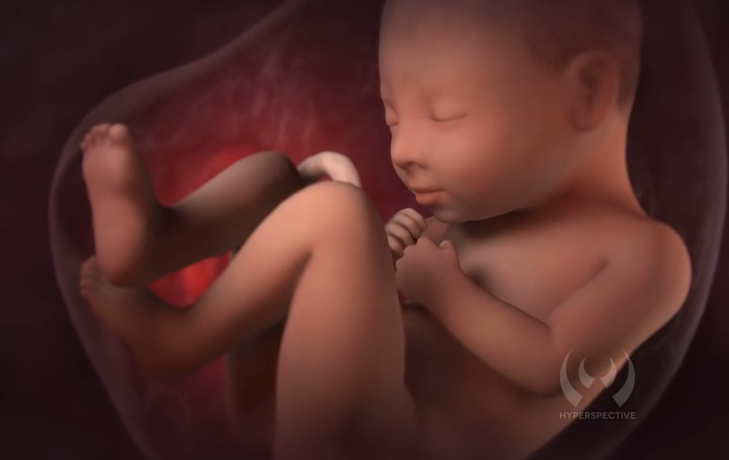A Texas hospital says abortion activists were wrong to blame a state 20-week abortion ban for forcing a woman to give birth to a stillborn baby.
Last week, abortion supporters in the media jumped on a tragic story of a woman named Taylor Mahaffey whose baby was stillborn after she went into early term labor. Pro-abortion media outlets claimed the law prolonged Mahaffey’s suffering by denying her an abortion and forced her to carry a child doomed to die
The Dallas Morning News reports St. David’s HealthCare in Austin, which cared for Mahaffey, said these claims are not true. Mahaffey herself wrote on her Facebook page that she was 17 weeks pregnant when she miscarried, well within the 20 week limit; and the hospital said the law allows abortions past 20 weeks for unborn babies with fatal defects.
While the hospital could not release detailed information about the case, due to privacy laws, it explained its policy for patients like the Mahaffeys: “When a patient with a fetus not compatible with life presents to the hospital, the policy of St. David’s HealthCare is to begin the 24-hour waiting period after a documented physician consultation with the patient, immediate administrative approval, and a signed consent form by the patient and two OB/GYNs.”
Click here to sign up for pro-life news alerts from LifeNews.com
The report explains what happened with the family:
Taylor’s husband, Daniel Mahaffey, wrote on Reddit that his wife’s cervix began to dilate too early, and the baby began emerging from her womb. Doctors tried a number of things to stall her labor, he said, but couldn’t do so.
Daniel wrote that the “only humane thing to do at that point” would be to speed up Taylor’s labor, but to do that would be considered an abortion. The American Congress of Obstetricians and Gynecologists said most physicians agree that a fetus is unlikely to survive outside of the womb before 24 weeks of development.
“Thanks to Texas’ frankly inhumane and cruel ‘Women’s Health Laws,’ this wasn’t an option,” Daniel wrote. He said the couple spent four days “in and out of the hospital waiting for nature to take its course.”
“These laws made my wife feel our child struggle inside her for days,” Daniel wrote. “These laws, in their effect, forced a woman to give birth to a stillborn baby.”
That was widely interpreted as the 20-week law, though he didn’t specifically identify that provision. He wrote that the baby “still had a heart beat, which we were forced to listen to. Because of this, and his age, any attempts to induce labor would be considered a late-term abortion.”
Liberal news outlets, including The Daily Beast and Cosmopolitan picked up the Mahaffeys’ story and blamed the 20-week abortion ban for causing the family grief, but they didn’t check the facts. They have been eager to attack the law ever since pro-abortion state Sen. Wendy Davis’s failed attempt to filibuster it in 2013.
The 2013 Texas law bans abortions after 20 weeks of pregnancy and protects unborn babies from abortion when scientific evidence shows they can feel pain.
A national poll by The Polling Company found that, after being informed that there is scientific evidence that unborn children are capable of feeling pain at least by 20 weeks, 64% would support a law banning abortion after 20 weeks, unless the mother’s life was in danger. Only 30% said they would oppose such a law. Polling from Texas also shows support for the legislation. Even a Huffington Post poll found a majority of Americans support banning late abortions — on a 2-1 margin.
The bill relies on the science of fetal pain to establish a Constitutional reason for Congress to ban abortions late in pregnancy.
The science behind the concept of fetal pain is fully established, and Dr. Steven Zielinski, an internal medicine physician from Oregon, is one of the leading researchers into it. He first published reports in the 1980s to validate research showing evidence for it. He has testified before Congress that an unborn child could feel pain at “eight-and-a-half weeks and possibly earlier” and that a baby before birth “under the right circumstances, is capable of crying.” Dr. Kanwaljeet Anand of the University of Arkansas Medical Center has provided further research to substantiate the work.








